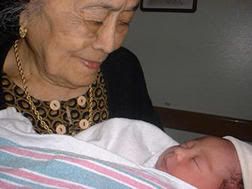 October is traditionally a time to reflect on issues of life and the dignity of all human beings at all stages and circumstances of life. As liturgists, we have a responsibility to be attentive to these issues while at the same time respecting the liturgical calendar. A good liturgical principle to keep in mind is trust the liturgical calendar and the liturgy to speak to the issues that face the church today. Tacking things and issues onto the Sunday Mass without working to integrate them into the Lectionary cycle and the primary issue of every Mass—the Paschal Mystery—only makes for a disjointed ritual. With this in mind, read what the Church teaches about these life issues and begin with the readings of the October Sundays to see how those scripture passages, as well as the ritual actions and symbols of the Mass, challenge all the baptized to respect life.
October is traditionally a time to reflect on issues of life and the dignity of all human beings at all stages and circumstances of life. As liturgists, we have a responsibility to be attentive to these issues while at the same time respecting the liturgical calendar. A good liturgical principle to keep in mind is trust the liturgical calendar and the liturgy to speak to the issues that face the church today. Tacking things and issues onto the Sunday Mass without working to integrate them into the Lectionary cycle and the primary issue of every Mass—the Paschal Mystery—only makes for a disjointed ritual. With this in mind, read what the Church teaches about these life issues and begin with the readings of the October Sundays to see how those scripture passages, as well as the ritual actions and symbols of the Mass, challenge all the baptized to respect life.
Be careful to look at the complete teaching of the Church on the issues of life, what Cardinal Bernardin called the “seamless garment.” And don't forget that every liturgy of the year, not just October, is meant to call all the baptized to a deeper respect for life.
The Catholic Church upholds a consistent life ethic that can be outlined in this way:
- Each human life is sacred and is to be protected and honored, from the moment of its conception to its natural end.
- The protection of human life is a matter of biblical justice. In order for society to be just, it must work for the protection of life in all situations.
- All issues that deal with the growth, development and protection of persons are intimately related to one another and thus should be addressed as one over-arching issue. The individual issues form a “seamless garment” and cannot not be separated, one from another.
Some of these interrelated issues of life are:
- Abortion
- Euthanasia and assisted suicide
- Death penalty
- Education
- Health care
- The threat of nuclear weapons and war
- Care for the earth
- The right to productive work
Below are some reflection questions that stem from this Sunday's readings and try to connect our social teaching with our world’s relevant issues of life.
October 2, 2004 – 27th Sunday Ordinary Time
“Destruction and violence are before me?” “For God did not give us a spirit of cowardice….” “We have done what we were obliged to do.”
What are our obligations as Catholics? Are we afraid to stand up in our homes, schools, workplaces, and communities when racial jokes are made, bullies pick on the weak, or when someone litters. Is there abuse in our homes, physical, sexual, or mental? Do we provide safe places and our presence for those abused or depressed? Do we pray for the life of the death row inmate as well as the unborn? Do our homilies and prayers address the real-life concerns and moments of grace of this particular community, or do they sound generic and canned? Do we relegate parents and children to "cry rooms" and make them feel guilty for restless children? Or do we welcome children of all temperaments and assist weary parents by providing child care during Mass, adequate space in restrooms for babies' needs, and caring responsible adults to help parents ease agitated children?
From “Sharing Catholic Social Teaching” by the US Bishops:
Life and Dignity of the Human PersonOther Church statements and resources
In a world warped by materialism and declining respect for human life, the Catholic Church proclaims that human life is sacred and that the dignity of the human person is the foundation of a moral vision for society. Our belief in the sanctity of human life and the inherent dignity of the human person is the foundation of all the principles of our social teaching. In our society, human life is under direct attack from abortion and assisted suicide. The value of human life is being threatened by increasing use of the death penalty. The dignity of life is undermined when the creation of human life is reduced to the manufacture of a product, as in human cloning or proposals for genetic engineering to create “perfect” human beings. We believe that every person is precious, that people are more important than things, and that the measure of every institution is whether it threatens or enhances the life and dignity of the human person.
- Evangelium Vitae: On the Value and Inviolability of Human Life
- When I Call for Help: A Pastoral Response to Domestic Violence Against Women
- Resources for addressing domestic violence
No comments:
Post a Comment